Can You Appeal an Impeding Traffic Ticket? — Yes, Here's How
Impeding traffic is a violation that occurs when a driver fails to operate their vehicle reasonably to block the normal flow of traffic. In most cases, impeding traffic occurs when you drive a motor vehicle at such a slow speed as to impede or block traffic's normal and reasonable movement. If your was issued unjustly, you could take steps to contest it. DoNotPay can help you make the best case possible for voiding or otherwise not paying the ticket.
What Are the Impeding Traffic Fines and Penalties?
The fines for impeding traffic vary from one state to another. However, the cost averages $80 to $150 depending on whether it contributed to an accident or not. Paying the fine late results in late fees on top of the fine.
Generally, the following are the consequences of an
- Misdemeanor criminal offense on your record
- Points on your driving record
- Costly fines
- Increased insurance premiums
- License suspension if your points exceed limits
What Are Impeding Traffic Points?
A violation of slow speed is considered a moving violation resulting in a citation and fine. Moving traffic violations generally carry points against your driver's license. The more points on your driver's license, the higher the consequences, including license suspension and higher insurance rates. However, some jurisdictions treat impeding traffic as a non-moving violation with a fine and zero points. It is essential to check with the laws of your state to find out the penalties and fines for this violation.
Which Vehicles Are Allowed to Drive at Slow Speeds?
The impeding traffic law doesn't apply to the following vehicles:
- Maintenance vehicles and equipment
- Motor vehicles with commercial registration that can't drive over 40 miles per hour
What Are the Options After Receiving an Impeding Traffic Ticket?
It is vital to get a moving violation reduced to a non-moving violation and reduce or dismissed fines.
You can either do the following:
| Pay the fine: | Paying the impeding traffic ticket is the same as pleading guilty. Although paying the fine is the easiest option, it can cost you later. Pleading guilty to moving violations will likely stay on your driver's record for a long time. It will also increase your insurance rates substantially and put a mark on your record. |
| Fight the fine: | Fighting a traffic ticket means you will go to court to face the judge and discuss your ticket. |
What Happens if I Ignore a Traffic Ticket in Dallas?
If you have an it is essential to resolve it as soon as possible. If you ignore the ticket, a warrant of arrest will be issued against you.
How to Fight an Impeding Traffic Ticket on Your Own
The following are some of the steps to take when fighting impeding traffic tickets:
- Demonstrate you were driving at safe speeds: argue that although the speed was below the speed limit, it was necessary to stay safe. This could be due to road conditions or weather conditions.
- Argue you needed to turn left: if you wanted to turn left, it could be a strong defense.
- Passing slower traffic: if there was the presence of slow traffic in the right lane, argue you had to pass them by driving slow in the left lane with the intention of getting over once passed.
- The car in front was driving slow: if you were stuck behind a slow car and you were unable to pass it on time, you can use this fact as your defense.
Exceptions to Impeding the Flow of Traffic
The following are the situations that may allow a driver to impede traffic with no consequences:
- Driving in certain incremental conditions like fog or reduced visibility forces you to reduce your speed
- When the grade of the road was not ideal for high speed
- When you were complying with other laws that required a slower speed.
- When a vehicle must be driven in the passing lane to exit or turn left.
- When a driver is on a toll highway, you have to pay a toll or use a pass.
How Long Does Impede Traffic Stay on a Record?
Impeding traffic violations can stay on your record for up to 18 months, depending on the state. It is essential to fight the ticket and ensure it doesn't affect your insurance rates.
How to Fight Traffic Tickets With the Help of DoNotPay
Here's how to get started:
- Log in to DoNotPay and go to the Ticket Disputes category. Select the correct product based on your traffic ticket.
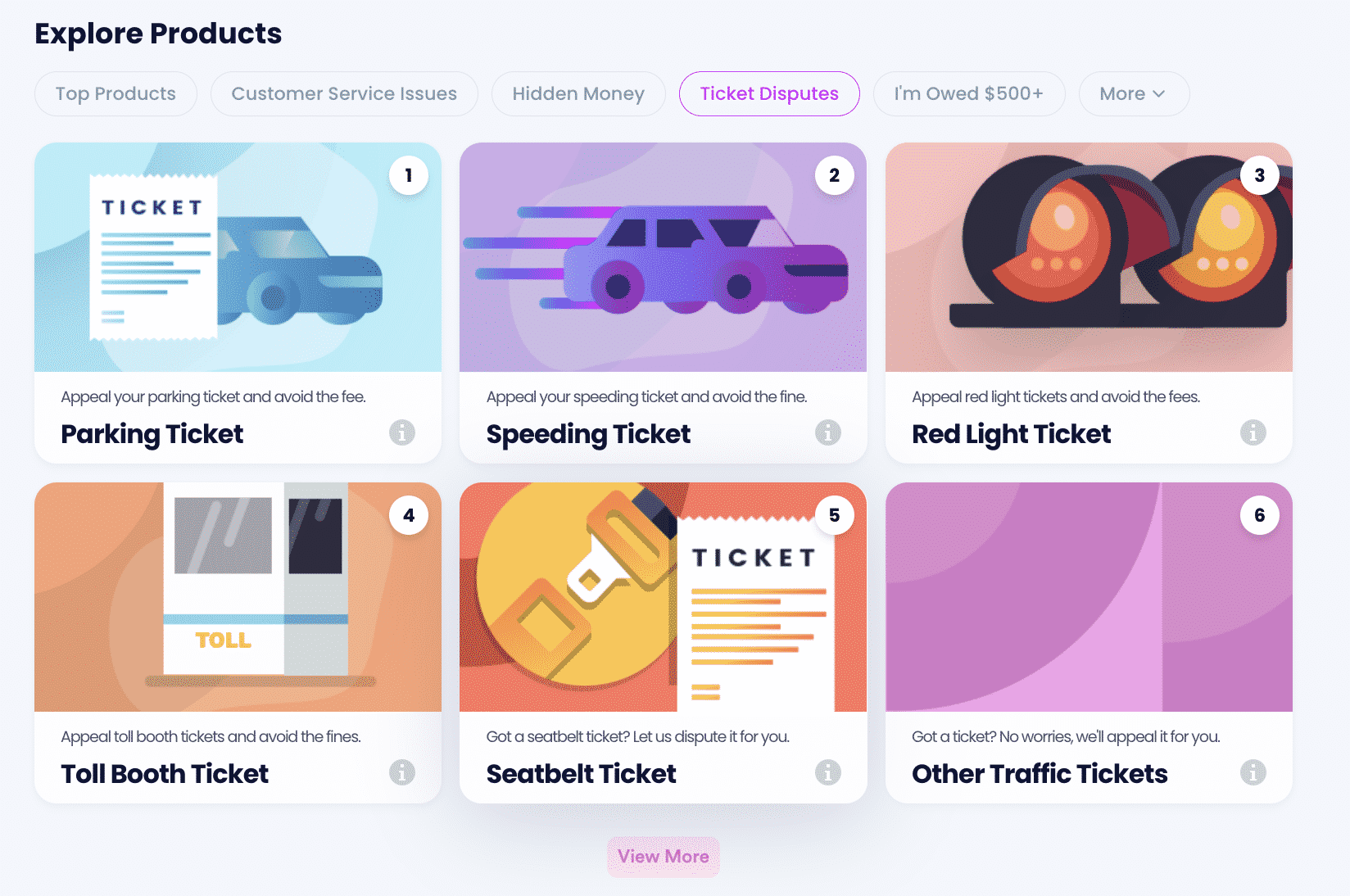
- Upload a photo of your citation.
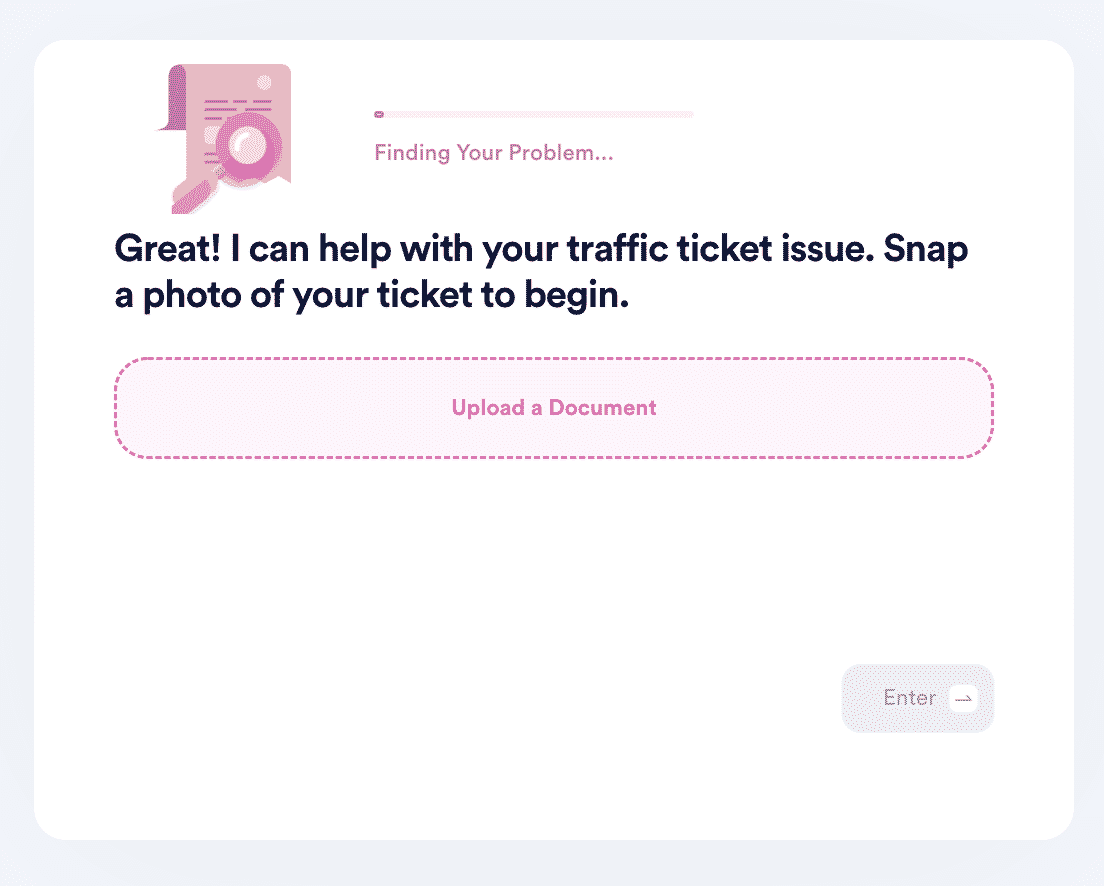
- Provide us with some details on why you believe the citation issued is a mistake.
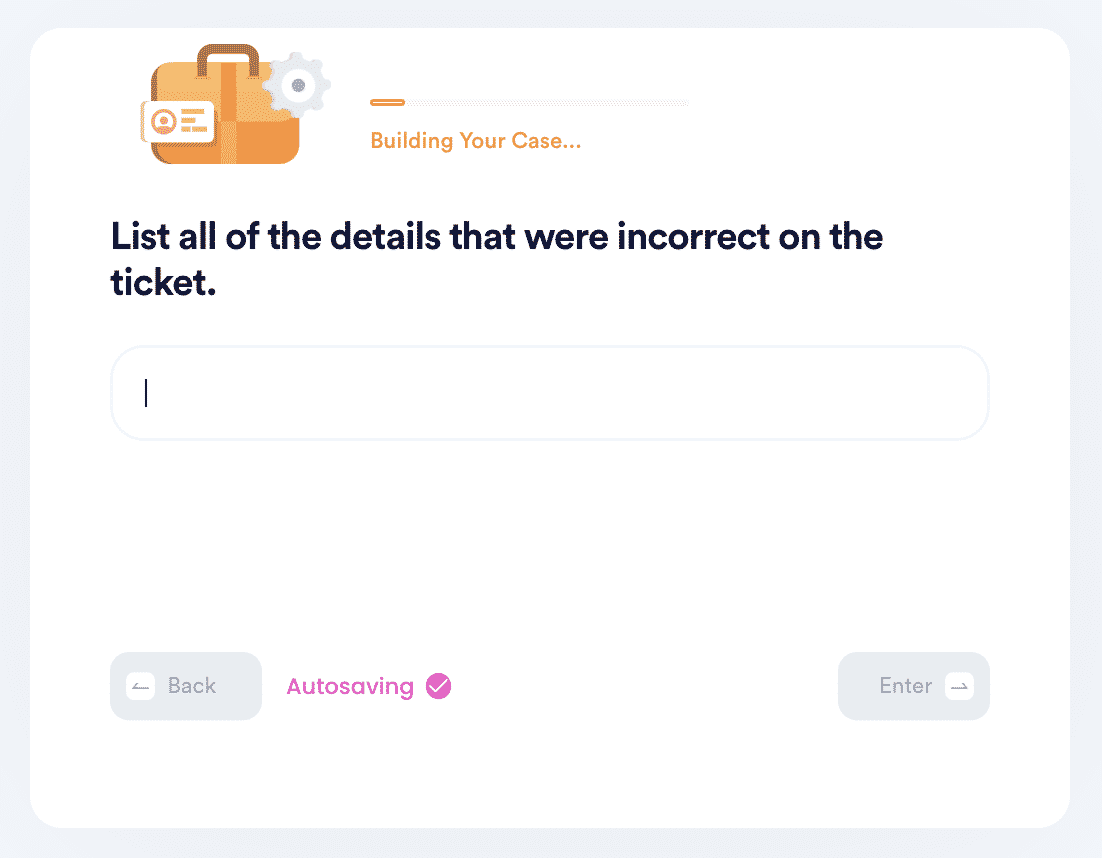
- Select whether or not you want the letter mailed to the traffic ticket issuer on your behalf!
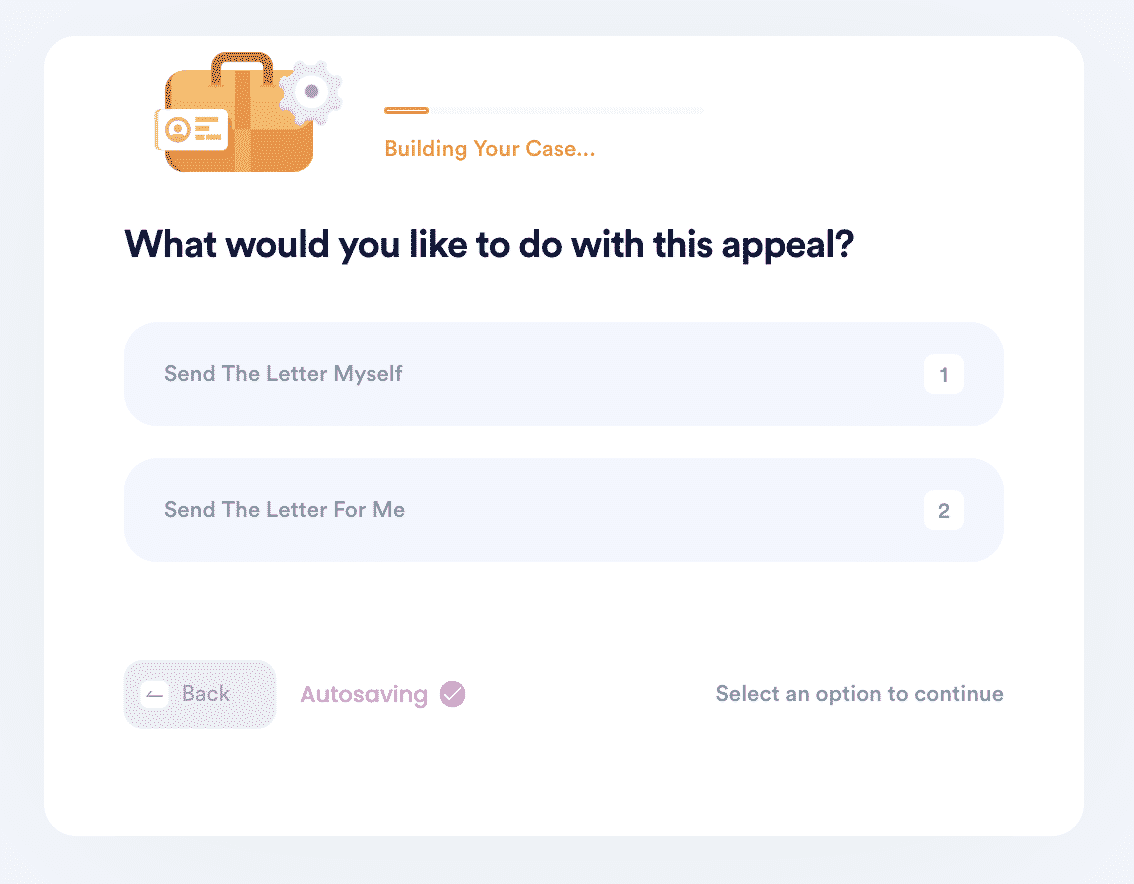
- That’s it! You’ll receive an appeal letter that contains state vehicle codes to boost your case.
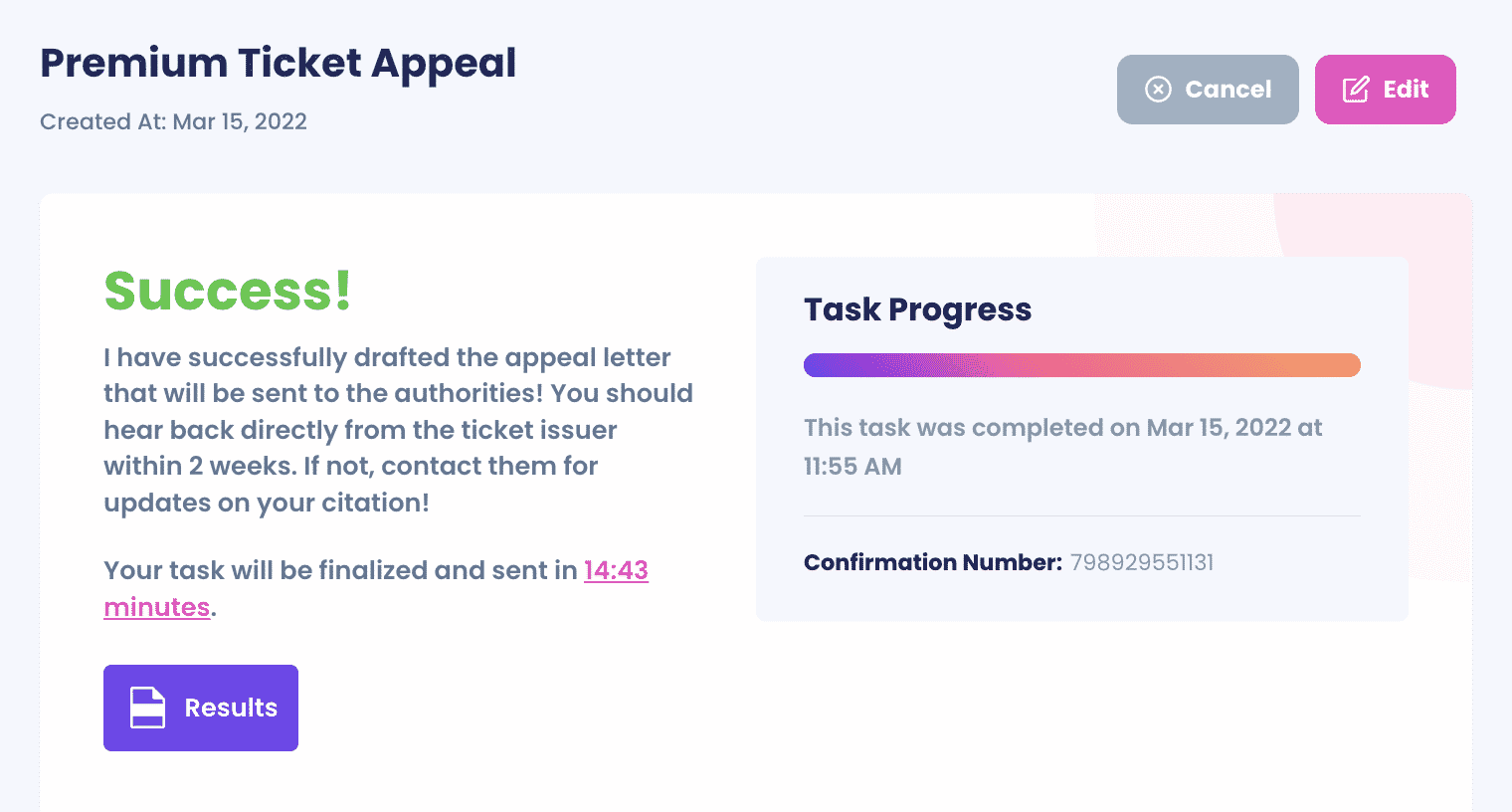
It's really that simple. Look out for your traffic ticket issuer's response to discover whether you won.
DoNotPay allows you to successfully fight traffic tickets in New York City, Los Angeles, California, and Las Vegas, among other states/cities.
Let DoNotPay help
If you have received an impeding traffic ticket, take steps to contest it instead of just paying the fine. DoNotPay can help you make the best case possible for voiding or otherwise not paying the ticket. Join us today to learn more!
 By
By